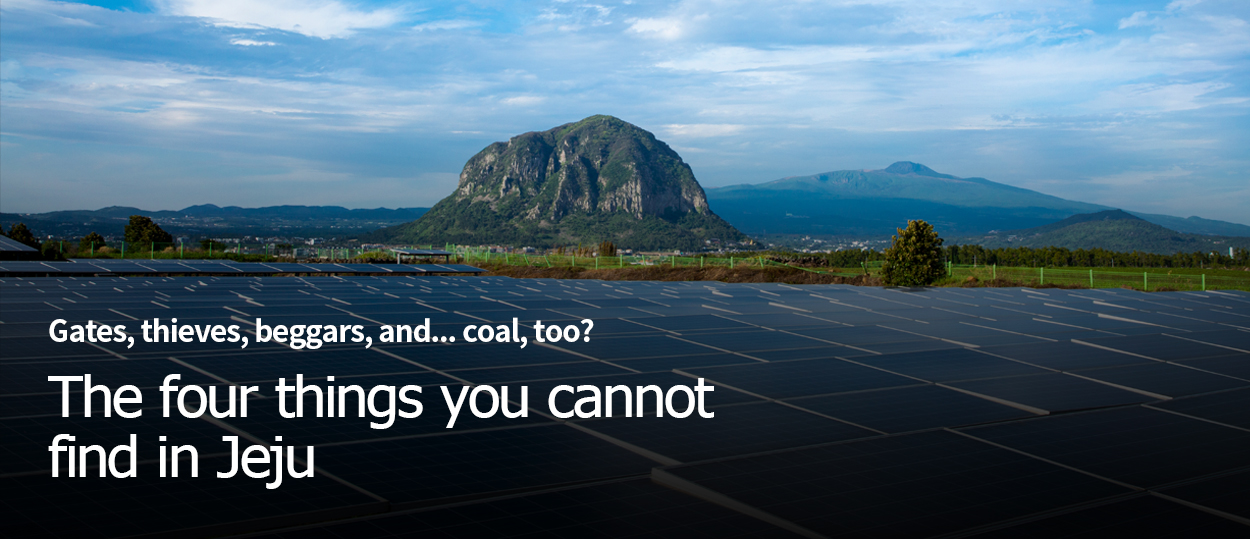Industry News
- Home
- Jeju Life
- Industry News


Jeju Special Self-Governing Province joined the Powering Past Coal Alliance(PPCA) on December 14 last year in a bid to establish an international network with countries and cities working to achieve a coal-free state and share Jeju’s low-carbon policies with the world.
The PPCA launched under the leadership of the UK and Canadian governments at the United Nations Framework Convention on Climate Change(UNFCCC) 23rd session of the Conference of the Parties(COP23) in Bonn, Germany, in 2017. The EU and OECD member countries aim to phase out coal-fired power generation, the cause of climate change and air pollution, by 2030, while other members target 2050. The coalition currently consists of 112 members, including countries, local governments, enterprises, and organizations; four cities in Korea – Seoul, Incheon, Gyeonggi-do, and Chungcheongnam-do – have joined the body.
Jeju Island’s joining of the PCCA was suggested by Simon Smith, British Ambassador to Korea, who attended the 15th Jeju Forum held on November 6 last year. He recommended Won Hee-Ryong, Governor of Jeju Special Self-Governing Province, to become a member of the alliance, saying, “It is critical for regions like Jeju that is practicing coal-free to serve as an example for other regions,” and with the governor’s response, “We will have a positive review on that,” Jeju Island signed up. Ahead of his suggestion, Michael Danagher, Canadian Ambassador to Korea, is also known to have told governor Won, “I would like to encourage governor Won Hee-Ryong to join the PPCA with the British Ambassador to Korea.”
As a member of the PPCA, Jeju Island plans to supply 100% of electricity demand with renewable energy by 2030, share the goal of replacing all gasoline vehicles driven on the island with eco-friendly vehicles by restricting new registration of combustion engine vehicles with other member states and cities, and gather support for its low-carbon policies.
Furthermore, Jeju Island joined the Carbon Neutrality Joint Declaration of Korean Local Governments’ Action Alliance for Carbon-Neutrality on July 7 last year in line with the central government’s Carbon Neutral Strategy 2050. It is planning to establish a basic plan for climate change response, including the goal of achieving carbon neutrality (Net Zero) by 2050 next year.
Carbon neutrality: Achieving net-zero carbon dioxide emissions, where greenhouse gas emissions are equal to those removed from the atmosphere.
Meanwhile, Jeju Island has been continuously promoting coal-free policies in a bid to reduce greenhouse gas emissions since the announcement of “Carbon Free Island 2030” in May 2012. As a result, Jeju has been supplying more than 30% of the island’s electricity consumption with renewable energy based on its power generation rate of 14%, the highest in Korea. Also, 20 thousand electricity vehicles are currently distributed across the island for the first time in the country. And designated as a regulation-free special zone regarding EV charging services, Jeju Island has been a leader in developing relevant industrial ecosystems.
In addition, following the 2030 Greenhouse Gas Mitigation Roadmap of Korea, Jeju Island has been promoting Jeju-style green-buildings, planting 5 million trees, distributing more EVs, reducing waste, and supplying more renewable energy with the goal of cutting greenhouse gas emissions by 2030 (33% compared to the estimated emissions).
